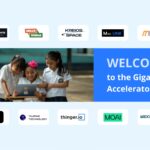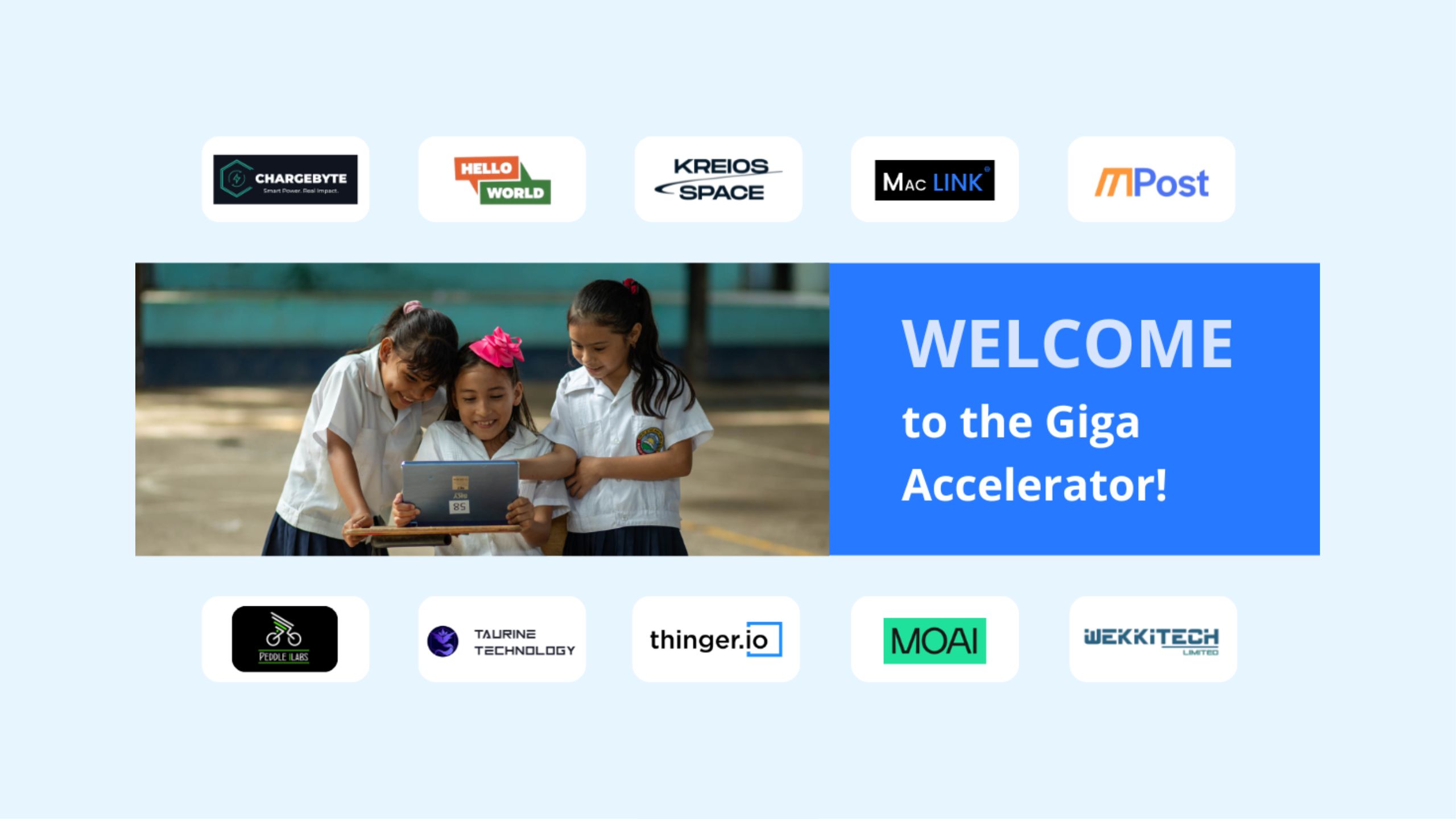Barcelona, Oct. 20 — The Giga Accelerator has shifted into the next gear.
The Accelerator, a key project of Giga—the ITU-UNICEF initiative supporting goverments to connect schools worldwide to the Internet—seeks to drive innovative, scalable and open-source solutions that tackle connectivity challenges in underserved areas.
Following a month-long selection process, 9 organizations from a global pool of 350 applicants have been chosen for their transformative technologies to help advance school connectivity faster and more sustainably.
“Innovation is essential to drive economically sustainable and inclusive school connectivity,” said Ivan Montforte, ITU Co-Lead, Giga Technology Centre. “In addition, the Accelerator opens potential collaborations beyond those selected to include other applicants and a wider tech ecosystem.”
Globally, roughly half of the world’s estimated six million schools are without Internet connection.
Next steps: mentorship, collaboration and global exposure
The selected participants will now enter a five-month mentorship programme to help them strengthen their products, refine their strategies and prepare for wide deployment. Each organization will receive up to USD 50,000 in grant funding.
While most activities will be virtual, the Accelerator is anchored at the Giga Technology Centre in Barcelona, offering participants access to a dynamic hub for innovation and collaboration.
The majority specialize in solar-powered, remote Internet access points. Other winning solutions include an open-source IoT platform, network management software, and a deep-tech startup in the space industry.
The group will gather for a designated Community Day in December and Demo Day in March 2026. Leading solutions will also be showcased at Mobile World Congress 2026, positioning them for potential high-level collaboration.
Spanish finalists:
- Thinger.io is an open-source IoT platform that democratizes the use of the Internet of Things by providing a communication server and user-friendly tools to create smart solutions.
- Kreios Space is a deep-tech startup developing the first Air-Breathing Electric Propulsion (ABEP) system that uses atmospheric particles as propellant to enable satellites to operate indefinitely in Very Low Earth Orbit (VLEO) for high-resolution Earth Observation and low-latency communications.
- Moai Analytics creates artificial intelligence algorithms and its own software platform to optimize capital expenditures (CAPEX) and maintenance plans for network assets for utilities and infrastructure companies.
International finalists:
- Mpost provides schools with a secure, verifiable, and accessible digital address, enabling access to essential services like education, healthcare and e-commerce.
- Peddle iLabs provides portable, solar-powered digital classrooms with an AI-driven platform for gamified micro-lessons and a decentralized peer-to-peer network for self-generating internet access.
- Hello World is a non-profit organization that provides solar-powered, community-built internet hubs with digital education and local capacity building to connect underserved communities in rural areas of Uganda and beyond.
- Taurine Technology is a company that develops open-source network management software to simplify the deployment and operation of networks in communities with limited resources.
- Chargebyte is a pan-African technology and clean energy company that builds locally manufactured, solar-hybrid charging and Wi-Fi-enabled stations to provide affordable power and digital access to underserved and off-grid communities.
- Mac Link addresses poor internet accessibility in underserved communities by deploying Wi-Fi hubs with affordable, high-speed subscriptions and by providing a SaaS platform for mini-ISPs to manage customers and scale their operations.
- Wekkitech provides affordable and reliable Wi-Fi access in underserved areas through its solar-powered, fiber-backed Kadobox Wi-Fi access points, which operate on a pay-as-you-go model.
The 10-member selection committee came from the public sector and tech communities: ITU, International Finance Corporation, Government of Spain, Government of Catalonia, City Council of Barcelona, Mobile World Capital, Cercle Technologic de Catalunya, Tech Barcelona, Barcelona Activa and Giga UNICEF.
Media contact: Braden Phillips 34 669 622 449
About Giga
Giga, a partnership between the International Telecommunication Union (ITU) and the United Nations Children’s Fund (UNICEF), has evolved since its founding in 2019 into a globally recognized initiative active in 45 countries and with early interest from a further 27. Giga is supported by the Government of Spain, the Regional Government of Catalonia and the City of Barcelona, while the Acclerator programme is being delivered jointly with global innovation platform Plug and Play.

